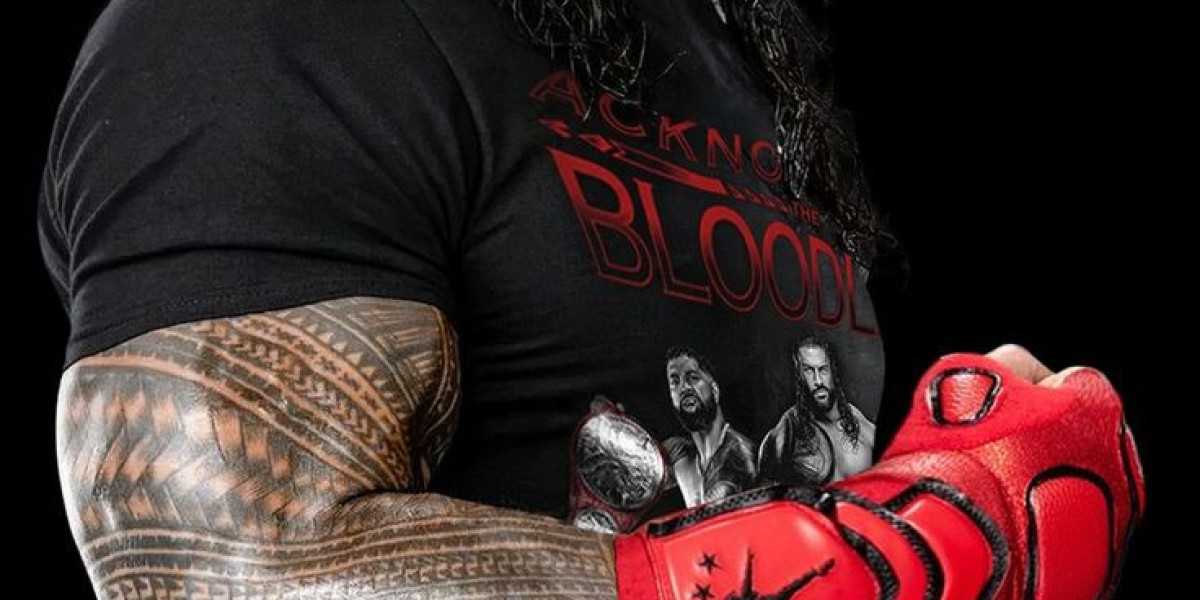For decades, two worlds of combat entertainment have lived side by side—one built on spectacle and storytelling, the other on blood, sweat, and raw competition. As we step into 2025, the rivalry between WWE and UFC has evolved far beyond the ring and the octagon. It’s no longer just about ratings or pay-per-view buys—it’s about attention, digital dominance, and global curiosity. The question many fans and analysts are asking today is simple: Who’s winning the global search battle—WWE or UFC?
According to online trends, discussions about wwe vs ufc popularity have surged dramatically in the past year. Social media, streaming services, and Google searches show just how much the lines between entertainment and real combat have blurred. But beyond numbers and stats, this rivalry touches something deeper—it reflects how people connect with competition, storytelling, and the meaning of fandom itself.
The Evolution of a Rivalry
When the UFC began its rise in the early 2000s, few could have predicted that it would ever rival WWE’s global recognition. WWE had decades of dominance behind it—a global brand, larger-than-life personalities, and weekly television shows that reached millions. But UFC brought something WWE couldn’t: reality.
While WWE’s outcomes are scripted, UFC’s are raw and unpredictable. This authenticity gave UFC a certain credibility, especially with younger fans looking for something “real.” Yet, WWE’s emotional connection and storytelling depth continued to resonate across generations.
In 2025, the contrast between these two worlds isn’t a matter of “fake” versus “real” anymore—it’s about how people choose to experience drama, discipline, and identity.
WWE: The Emotional Spectacle
There’s something timeless about WWE’s ability to create emotional moments. From WrestleMania showdowns to unexpected returns, the brand thrives on giving fans goosebumps.
WWE isn’t just about fighting—it’s about narrative. The characters, their rivalries, and their personal transformations are what keep audiences invested. For many families, WWE has been a shared tradition. Fathers and sons bond over it, mothers cheer from the couch, and friends gather for every major event.
The WWE universe runs deeper than matches. It’s a world of merchandise, entrances, and iconic catchphrases that carry emotional meaning. When a superstar returns after years away or a beloved wrestler wins against the odds, it taps into something deeply human—the love of redemption and triumph.
Even though critics often point out that it’s scripted, WWE has never denied that. In fact, its magic lies in turning storytelling into a sport and emotion into entertainment.
UFC: The Pure Competition
On the other side, UFC captures what WWE doesn’t attempt to fake—the raw essence of combat.
There’s a purity to UFC that draws a different kind of fan. Here, every punch, every submission, every takedown has real consequences. It’s about strategy, resilience, and survival. Fans admire the courage it takes to walk into the octagon, knowing that nothing is guaranteed.
Over the past few years, UFC has become a global phenomenon, especially with stars like Conor McGregor, Jon Jones, and Israel Adesanya breaking cultural boundaries. Social media has amplified UFC’s reach, allowing fighters to build their own brands, share personal stories, and connect directly with fans.
This rawness, combined with accessibility through platforms like ESPN+, has helped UFC close the gap with WWE in terms of mainstream recognition. The sport now appeals not only to fight purists but to casual viewers who admire determination, discipline, and courage.
The Digital Era: Search, Streaming, and Social Power
In today’s digital age, popularity isn’t just measured by ticket sales or TV ratings—it’s measured by searches, clicks, and shares.
When people search online, they’re expressing curiosity, loyalty, or emotional connection. Google Trends data over the past two years shows that searches for “UFC fights tonight” and “WWE results” fluctuate in fascinating patterns. WWE dominates around major events like WrestleMania or the Royal Rumble, while UFC peaks before big title fights.
Interestingly, crossover moments—like when former UFC fighters join WWE—tend to create massive spikes for both. Ronda Rousey, Brock Lesnar, and more recently, Logan Paul’s appearances have blurred fan bases even more.
Both organizations now compete as much in the attention economy as they do in arenas. Fans don’t just watch—they interact, meme, comment, and create. Every viral knockout or dramatic promo becomes content that drives the next surge in interest.
The Global Shift: Who’s Capturing More Hearts?
In 2025, both WWE and UFC have expanded their reach in ways that show how globalization is redefining fandom.
WWE’s Expansion:
WWE continues to excel in storytelling across cultures. Events like “Crown Jewel” in Saudi Arabia and shows in India, the UK, and Australia prove that wrestling’s dramatic appeal transcends language. The company’s partnerships with streaming platforms have made it easier for fans to watch from anywhere, anytime.
UFC’s Reach:
UFC, meanwhile, has aggressively expanded into new markets. The rise of fighters from Africa, Asia, and Eastern Europe has created new heroes for global audiences. Fight nights are now hosted across continents, showcasing talent that represents a wide range of backgrounds and fighting styles.
But when it comes to search popularity, WWE still seems to edge out UFC on a global scale—especially in regions where wrestling culture is embedded in family tradition. However, UFC’s growth is undeniable, especially among younger adults and in countries where MMA gyms are becoming as common as soccer fields.
Emotional Connection vs. Authentic Competition
The secret to WWE’s sustained popularity isn’t just nostalgia—it’s emotion. Every feud and storyline is designed to evoke empathy, anger, or joy. WWE fans don’t just watch the matches; they feel them.
In contrast, UFC appeals to a primal sense of respect for athletic excellence. It’s not about who tells the best story—it’s about who survives the fight. Fans are drawn to the honesty of it. When a fighter loses, there’s no script to protect them. Their vulnerability becomes part of their legend.
This distinction is what keeps both fanbases alive and growing. WWE connects through shared emotion; UFC connects through shared admiration. And both, in their own ways, satisfy a universal human desire: the thrill of witnessing strength, struggle, and redemption.
The Influence of Stars and Storylines
No rivalry would be complete without its icons.
WWE’s biggest stars—Roman Reigns, Cody Rhodes, Seth Rollins—carry both athletic skill and theatrical charisma. Their feuds are cinematic, their entrances electrifying. WWE’s genius lies in how it builds mythology around its performers. Fans don’t just follow matches—they follow lives.
UFC’s stars, on the other hand, embody real-world ambition and grit. When someone like McGregor or Amanda Nunes steps into the cage, fans see the culmination of years of training, sacrifice, and personal struggle. The UFC’s storytelling isn’t scripted, but it’s equally powerful—because it’s true.
In a sense, both industries rely on storytelling—WWE crafts it deliberately, UFC lets it unfold naturally.
Search Popularity Trends for 2025
As of early 2025, data indicates that global searches for UFC have risen steadily, particularly in Latin America and the Middle East. WWE remains strong in North America, India, and parts of Europe.
However, what’s fascinating is how seasonal their popularity has become. WWE dominates during its major event months, while UFC captures attention in between. It’s almost as if fans alternate between emotional drama and raw combat, depending on what they crave.
Analysts predict that as crossover athletes continue to emerge—and as social media merges fan communities—search trends will show more overlap than ever.
For now, though, the competition remains neck and neck. And discussions around wwe vs ufc popularity continue to trend as fans passionately defend their side.
Cultural Meaning and Modern Identity
Beyond the stats, there’s something profoundly cultural about this rivalry. WWE represents performance, creativity, and emotional storytelling. UFC represents authenticity, bravery, and the raw will to win.
Both appeal to human identity in different ways. WWE fans often see themselves in the characters—their struggles, their comebacks, their larger-than-life personalities. UFC fans, on the other hand, see themselves in the discipline, the risk, and the hunger to achieve something real.
It’s no coincidence that many young people today admire both. In a world where social media blurs the line between image and truth, both WWE and UFC offer a kind of catharsis. One gives fantasy; the other gives reality. Together, they shape how we define strength and entertainment in the 21st century.
The Future of Fandom
Looking ahead, the next few years will likely bring even more crossover between WWE and UFC. Since their corporate merger under the same parent company, we’ve already seen shared marketing efforts and creative collaborations. Fans speculate about whether we might someday see a hybrid event—a dream match that blurs the lines completely.
Beyond that, the way fans engage with both worlds is changing. Short-form video platforms, live fan interactions, and augmented reality experiences are reshaping what “watching” even means. The future of these two giants isn’t just about fighting—it’s about how they keep audiences emotionally invested.
Why the Rivalry Still Matters
This isn’t just about sports or entertainment—it’s about what these two worlds say about us.
People don’t only watch WWE or UFC to be entertained; they watch to feel inspired. WWE gives hope through stories of perseverance. UFC gives proof through human endurance. Both speak to our need for connection, courage, and meaning in the chaos of modern life.
Whether you’re drawn to the heroic comeback of a WWE superstar or the quiet determination of a UFC contender, both experiences remind us that greatness takes more than talent—it takes heart.
FAQs
1. Why do WWE and UFC fans argue so much about which is better?
Because each represents a different value system. WWE is about storytelling and legacy, while UFC is about skill and authenticity. Fans often defend what resonates most with them personally.
2. Is WWE losing popularity compared to UFC?
Not exactly. WWE’s fanbase remains massive, but UFC’s growth is impressive. The two now share overlapping audiences, and each dominates different cultural and digital moments.
3. How has social media changed the rivalry?
It’s made both more accessible and more personal. Fighters and wrestlers interact directly with fans, making their journeys relatable and inspiring. Social platforms also fuel debates and increase visibility globally.
4. Which has more influence among young audiences in 2025?
UFC seems to be trending higher among younger adults seeking realism, while WWE remains strong among families and nostalgic fans. Both continue to evolve with cultural shifts.
5. What’s the bottom line in the global search battle?
In pure numbers, WWE slightly leads in overall global visibility—but UFC is closing fast, especially in emerging markets. The real winner might be the fans, who now enjoy the best of both worlds in an era where entertainment and authenticity coexist seamlessly.
As 2025 unfolds, it’s clear that this rivalry isn’t fading—it’s transforming. WWE and UFC have become more than entertainment brands; they’re reflections of how we experience heroism, struggle, and identity in the digital age. Whether you lean toward the scripted magic of wrestling or the raw intensity of mixed martial arts, one truth remains: both have earned their place in the global imagination—and both continue to fight, not just in the ring or octagon, but in our hearts.








